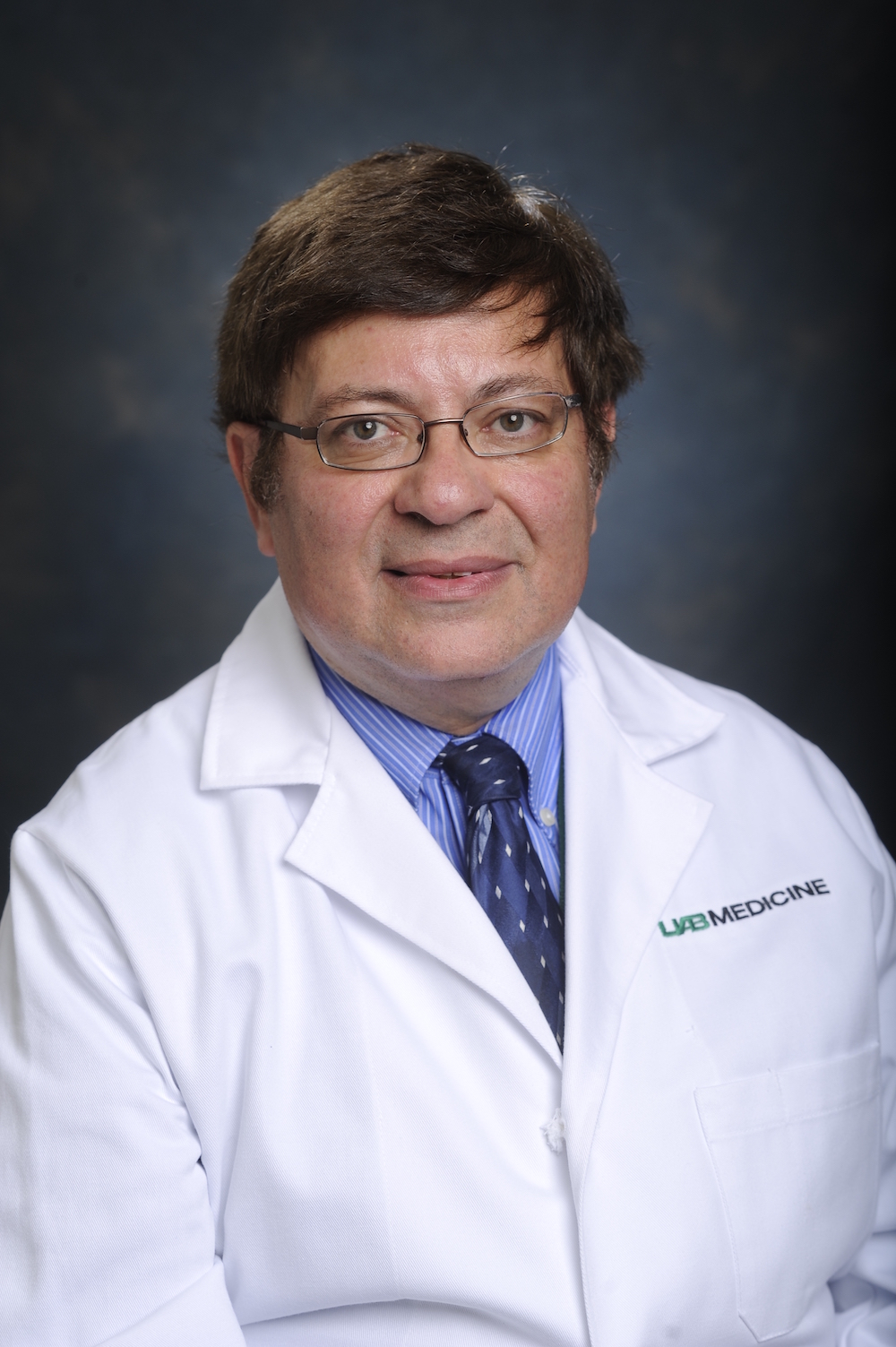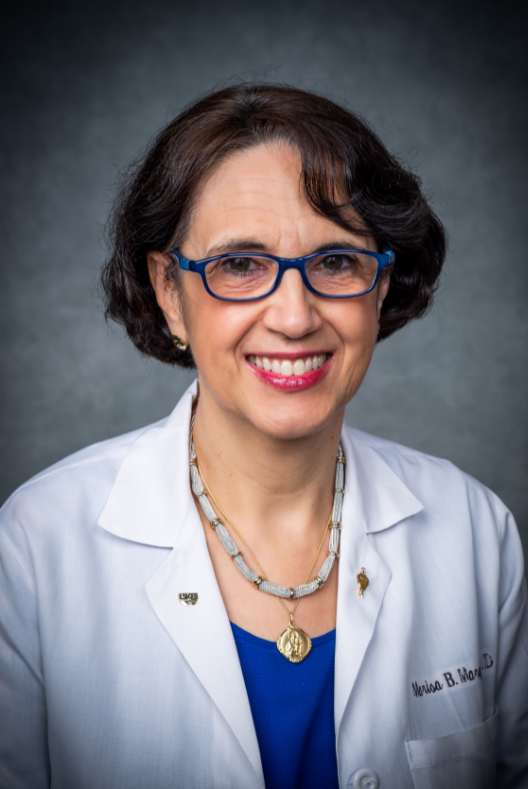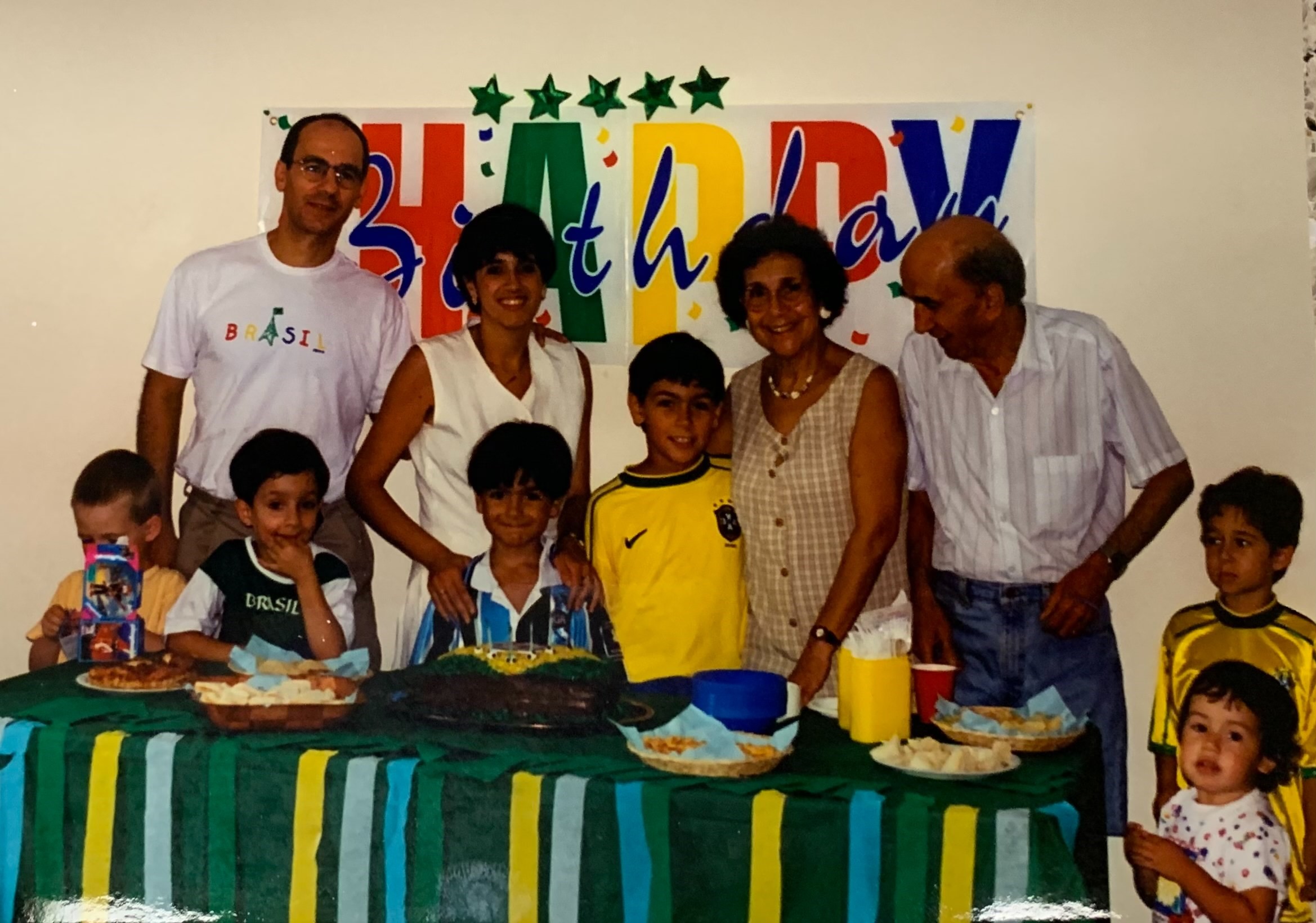
National Hispanic Heritage Month kicks off September 15, 2021, and we're proud to share the stories of our two Diversity Task Force founding faculty members' personal stories. First, Silvio Litovsky, M.D., Professor, Anatomic Pathology, Senior Scientist, Comprehensive Cardiovascular Center and Associate Scientist, Minorith Health & Research Center and the General Clinical Research Center at UAB. He won the 2020 SOM Dean's Excellence Award in Teaching and also won an Argus Teaching Award in 2020 as best MS1 organ module director, cardiovascular. Dr. Litovsky was born and raised in Buenos Aires, the capital of Argentina.
- How long have you been at UAB and how did you come to be here?
I joined UAB in August 2004. My area of expertise is cardiovascular pathology, a specialized field that can be difficult to find positions in, but cardiovascular pathologist Dr. James Caulfield was retiring, and that is how I got hired. I always liked cardiology, and did a residency in cardiology in Buenos Aires before coming to the U.S. From the beginning of my pathology residency, I wanted to specialize in cardiovascular pathology.
- How has diversity impacted your personal life?
My two sets of grandparents moved from Russia to Argentina, two before World War I and the other two immediately following WWI, escaping the Russian civil war and communism. Argentina and especially Buenos Aires has a population of predominantly European descent (Italy and Spain mostly), so I never felt like I was a member of an under-represented minority. The indigenous population is under-represented in Argentina academia, business, politics, military, etc.
- Your career?
It did not affect me in Argentina or the U.S. Pathology is a field with a high percentage of foreign graduates, especially in academia. Our department is a good example of that.
- What is a change you’d like to see at UAB regarding diversity?
UAB is making a significant effort regarding diversity among students, faculty and staff. Population outreach is growing and needs to be expanded.
- What is something you’re proud about relating to diversity and your UAB life?
I honestly believe these efforts are genuine and there is energy in the UAB community to keep expanding it. I am active in the Medical Spanish interest group and it makes me happy to see many students, not coming from Spanish-speaking homes, wanting to learn Spanish to better communicate with Spanish-speaking patients.
- What do you hope to gain (or have you gained) from serving on this committee? How do you think it can assist the department as a whole?
We are all very busy and some of us are probably overextended but to make a positive impact embracing diversity is a major goal, especially in present times.
- What would you like others to know about you or your culture that will affect how they treat you here?
I don’t feel that I am treated differently than somebody that was born in the U.S. My accent, of course, immediately indicates that English is not my native language but in academia, this is not a significant disadvantage.
 Next, we feature Marisa Marques, M.D., Professor, Laboratory Medicine. She is a Professor of Pathology at UAB, serving as medical director of Transfusion Services.
Next, we feature Marisa Marques, M.D., Professor, Laboratory Medicine. She is a Professor of Pathology at UAB, serving as medical director of Transfusion Services.
From Dr. Marques:
I graduated from medical school in the southern Brazilian city of Porto Alegre in 1983, followed by a residency in Internal Medicine. In 1986, my husband and I came to the United States to be research fellows at the National Institutes of Health (NIH) in Bethesda, Maryland. The NIH was an amazing place to start our journey in a different country, language and culture. We met individuals from everywhere in the world and worked with many brilliant people.
In order for my husband to obtain clinical training, in 1988 we moved to Boston, where I was a research fellow in Infectious Diseases at Harvard Medical School. We had our first son and spent five wonderful years there. Because of the J-1 visa rules, we needed to move to an underserved area of the country or return to Brazil. This is how we ended up in Birmingham in 1993, where our second son was born. Dr. Marques (second from left) at her youngest son's birthday party, with a Brazilian theme, in 1998.
Dr. Marques (second from left) at her youngest son's birthday party, with a Brazilian theme, in 1998.
While in Boston, I discovered the specialty of clinical pathology and decided to pursue it. Based on seven years of research in microbiology and immunology, I hoped to train to become a clinical microbiologist. During residency, it was clear that there was not going to be a position for me at UAB in that role. Thus, since my family was getting settled and moving to another city would be complicated, I had to find another route.
I took a last-minute hematopathology fellowship opening at UAB, and completed that after residency. Unfortunately, I still did not have a job when I graduated in the summer of 1998. However, there was an immediate need for someone to help cover Transfusion Medicine. Even though I had not had a fellowship, I was hired as a part-time temporary employee and worked as such for six months. In retrospect, that arrangement was a good thing since I could volunteer at my sons’ school and spend more time with them. Once again, the Division of Laboratory Medicine needed to fill a vacant position in Coagulation. For that reason, I became a full-time assistant professor in March of 1999 and created the UAB Coagulation Service, which was active for many years.
As a consultant in Transfusion Medicine, Apheresis and Coagulation afforded me countless interactions with clinicians and trainees all over UAB for more than 20 years. I also became involved nationally with societies like American Association of Blood Banks, American Society for Clinical Pathology, American Society for Apheresis (ASFA) and Academy of Clinical Laboratory Physicians and Scientists (ACLPS), becoming President of the last two in the last decade.
Today, as I contemplate the end of my career to be more present to my grown sons and their families, I know that I was fortunate to have landed at UAB. I met many wonderful people here and elsewhere as a proud pathologist–many more than I ever dreamed of. As a Hispanic international medical graduate woman, I had my share of setbacks and difficulties--certainly more than some, and less than others. My message to those like me (and anyone else who may want to listen), is to always carry on. Don’t let any stereotype or biased opinion slow you down or prevent you from reaching your potential. Most successful careers did not come easy, but the reward makes it all worthwhile.